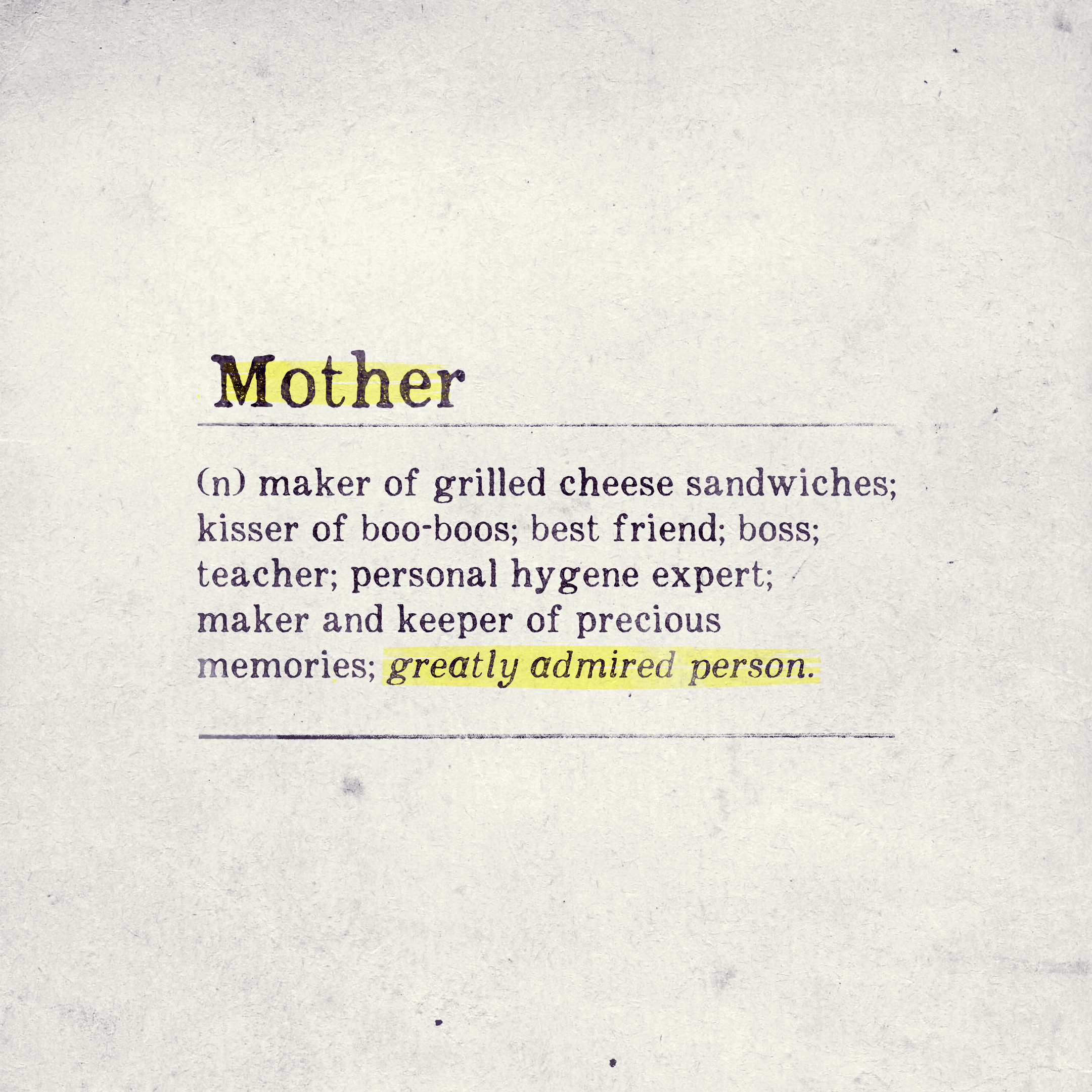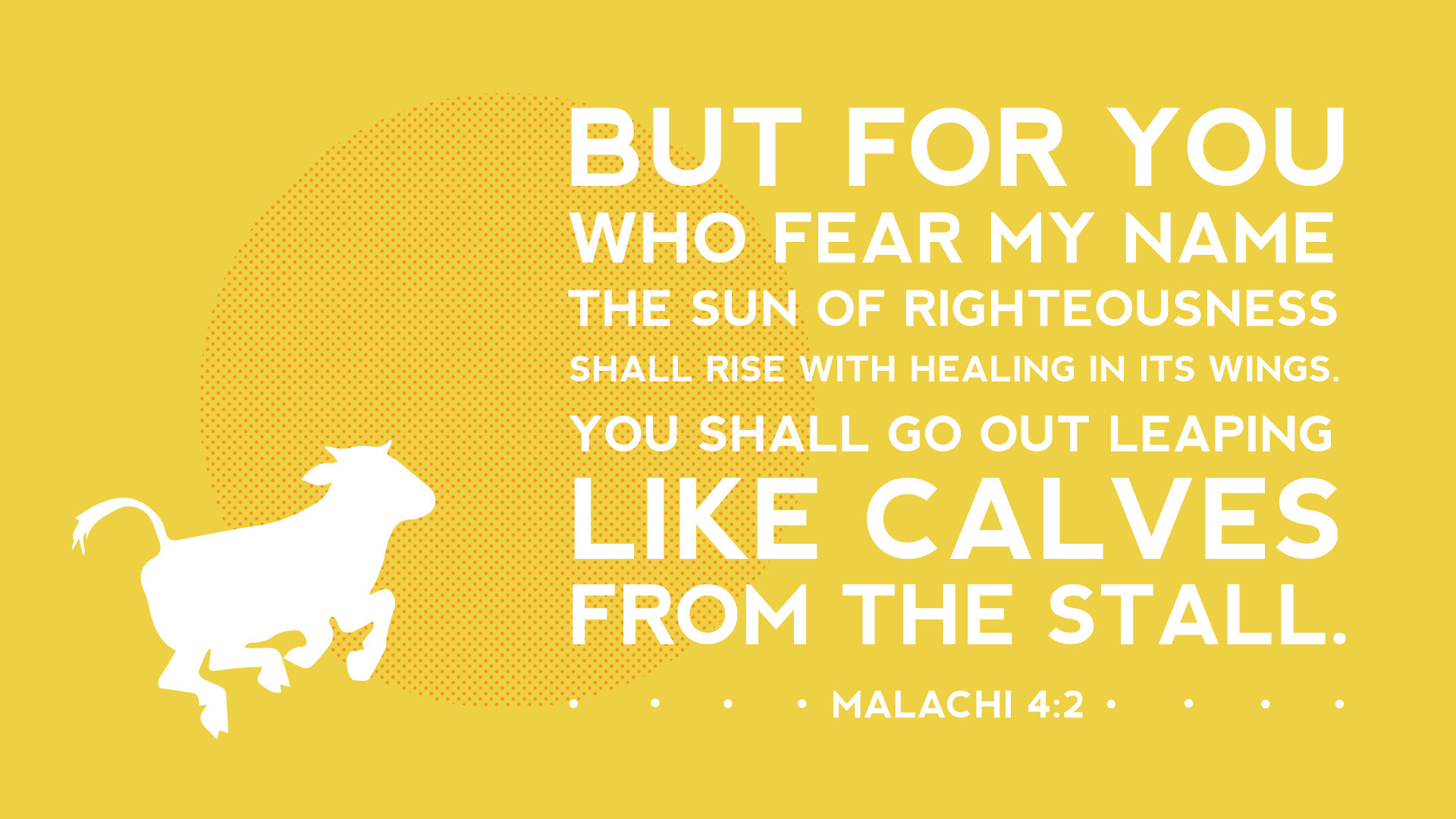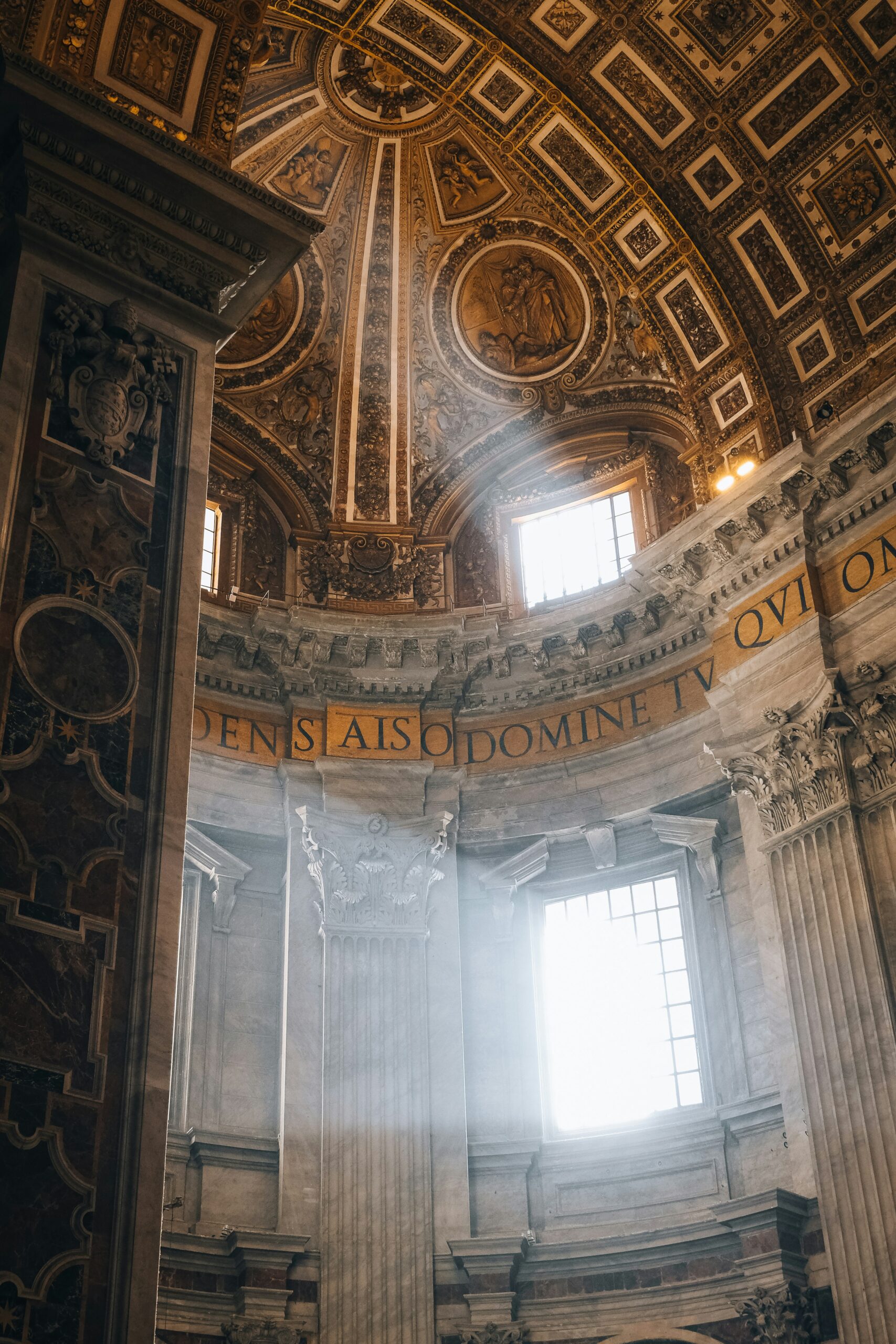
News & Announcements for Sunday, May 11, 2025

JOIN US FOR SUNDAY SCHOOL
If you’re looking for an opportunity to grow as a disciple of Jesus Christ, we encourage you to join us Sunday mornings for a intergenerational Sunday school class, from 9:30-10:30. We look forward to seeing you!
MIDWEEK PRAYER – WEDNESDAYS @ Noon
Please join us on Wednesdays at noon for a time of prayer in the sanctuary as we bring our needs before our loving God.
WOMEN’S BOOK CLUB – THURSDAY, May 22, 10AM
The Women’s Book Club will meet next Thursday, May 22 at 10:00 a.m. at the church. This month’s book is Why the Universe Is the Way It Is by Hugh Ross. Regarding refreshments, we are asking everyone to bring a little something to share. We look forward to seeing you next Thursday, whether you’ve read the book or not!
MISSION FOCUS FOR MAY: HELPING HANDS
Our mission focus for the month of May is Helping Hands of Amherst County which help citizens of Amherst County who need an occasional helping hand with necessities such as food, electric bills, rent and water bills when children or medical needs are present. It is administered out of Madison Heights Baptist Church. You may make a donation by specifying ‘Helping Hands’ on your check memo line.
DOWNLOAD THE CHURCH CENTER APP
Search for “Church Center” in your favorite app store on your phone to download our app! In the app are the church calendar, small group and volunteer opportunities, the online church directory, and more.
Coming Soon…
GET IN SHAPE CLASS
No, not physical shape – spiritual S.H.A.P.E.! God has given every believer gifts and shaped us for ministry and service. If you’re asking questions like, What are my spiritual gifts? How has God shaped me for service and ministry? Where do I “plug in?” What is God calling me to do in this phase of my life? Then this class is for you! We encourage every member of Northminster to join us for this, coming this spring.
Read more...

News & Announcements for Sunday, May 4, 2025

JOIN US FOR SUNDAY SCHOOL
If you’re looking for an opportunity to grow as a disciple of Jesus Christ, we encourage you to join us Sunday mornings for a intergenerational Sunday school class, from 9:30-10:30. We look forward to seeing you!
MIDWEEK PRAYER – WEDNESDAYS @ Noon
Please join us on Wednesdays at noon for a time of prayer in the sanctuary as we bring our needs before our loving God.
WOMEN’S BIBLE STUDY – MONDAY, MAY 5, 7PM
The Women’s Bible Study will meet on Monday, May 5 at the church at 7:00 p.m in the Tatman Room. We will be studying the chapter entitled, “Jesus and John – Friends for Eternity” in The Love Stories of the Bible Speak by Shannon Bream. Come prepared to share what you got out of the reading and any questions you might have. Please bring a friend and a food item to share with the group.
MISSION FOCUS FOR MAY: HELPING HANDS
Our mission focus for the month of May is Helping Hands of Amherst County which help citizens of Amherst County who need an occasional helping hand with necessities such as food, electric bills, rent and water bills when children or medical needs are present. It is administered out of Madison Heights Baptist Church. You may make a donation by specifying ‘Helping Hands’ on your check memo line.
DOWNLOAD THE CHURCH CENTER APP
Search for “Church Center” in your favorite app store on your phone to download our app! In the app are the church calendar, small group and volunteer opportunities, the online church directory, and more.
Coming Soon…
GET IN SHAPE CLASS
No, not physical shape – spiritual S.H.A.P.E.! God has given every believer gifts and shaped us for ministry and service. If you’re asking questions like, What are my spiritual gifts? How has God shaped me for service and ministry? Where do I “plug in?” What is God calling me to do in this phase of my life? Then this class is for you! We encourage every member of Northminster to join us for this, coming this spring.
Read more...

May 2025 Mills’ Musings — PROTESTANTS AND THE PAPACY

Read more...

May 2025 Pastor’s Corner — All It Takes Is An Invitation

How then will they call on him in whom they have not believed? And how are they to believe in him of whom they have never heard? And how are they to hear without someone preaching? And how are they to preach unless they are sent? As it is written, “How beautiful are the feet of those who preach the good news!” — Romans 10:14-15
Last Wednesday we held an “Inquirer’s Class.” This is the class we offer to new visitors and regular attenders who would like to learn more about Northminster, our denomination (the Evangelical Presbyterian Church), and where we believe God is leading us in the future. While the class is open to anyone who would like to attend, we extended specific invitations to 11 folks who have been visiting and worshipping with us regularly since last fall. Of those 11, 6 were able to attend (those missing were family members who had conflicts). It was a fun evening with a lot of great conversation.
We began the evening by asking for folks to share what brought them to Northminster. Four of the six had variations of the same answer: someone invited them. Here’s the thing: whittle every evangelism and church growth strategy down and ultimately they all are about the same thing: inviting someone to church. The best tool we have, and really the only one that matters, is relationships. Every story I’ve ever heard about how someone came to faith in Jesus Christ boils down to someone in their life caring enough to tell them about Jesus.
This is exactly how God intended it to be. The Gospel spreads primarily and almost exclusively through word-of-mouth. At the very beginning of Jesus’ ministry, the reason Nathanael ended up as a disciple was because Philip invited him to “come and see” for himself. (John 1:46) Jesus repeatedly told His disciples and those He healed to tell others about Him (Matthew 28:19-20; Mark 16:15; John 20:21; Mark 5:19; Matthew 10:7). After Jesus was resurrected and ascended into heaven, the apostles were so amazed and transformed by all they had seen and experienced but when told to stop talking about it, they responded, “we cannot but speak of what we have seen and heard.” (Acts 4:20).
That’s also exactly the way God intended it to be. As we grow as disciples and are transformed into the likeness of Jesus Christ by the Holy Spirit, that change should be something of which we cannot but speak. That’s what a “testimony” is — telling others about what you have seen and heard, about how Jesus has changed and blessed your life. What have you seen and heard from Jesus lately? How has He transformed you and changed you? Maybe you’ve experienced a miraculous physical healing, or He has healed your heart or soul. Maybe you’ve learned something new about the depths of His grace or the wonders of His creation. Whatever it is, tell someone about it, and invite them to experience the same transformation you’ve seen. You don’t need to give a sermon or a thorough theological discourse, all you need to do is “Go home to your friends and tell them how much the Lord has done for you, and how he has had mercy on you.” (Mark 5:19).
Maybe you don’t know what to say to someone about Jesus, or the thought of it makes you too nervous. Then let your actions tell the story of how Jesus is changing you. Jesus says in Matthew 5:16, “...let your light shine before others, so that they may see your good works and give glory to your Father in heaven” and in John 13:34-35, “A new commandment I give to you, that you love one another: just as I have loved you, you also are to love one another. By this all people will know that you are my disciples, if you have love for one another.” When we live lives consistent with the Gospel and the Kingdom of God, people around us won’t be able to help but notice, and when they ask you why you’re so weird, follow Philip’s example and invite them to come to church and see for themselves. If we’re doing things right, the Gospel is proclaimed at some point in every worship service. You might not be comfortable telling someone about Jesus, so let us do it for you.
The Holy Spirit will bring to salvation all those whom God has chosen, it might just be that the means by which he does that is the invitation you extend to someone. Take a few minutes to think of two or three people in your life who don’t already know Jesus Christ as their Lord and Savior. Add them to your daily prayer list, that the Lord would begin softening their heart to hear the Gospel and that He would provide an opportunity for you to invite them to come with you to meet Jesus, whether that’s through a conversation you have with them or by bringing them to church with you. All it takes is an invitation.
“Go therefore and make disciples of all nations, baptizing them in the name of the Father and of the Son and of the Holy Spirit, teaching them to observe all that I have commanded you. And behold, I am with you always, to the end of the age.” — Matthew 28:19-20
Blessings,
Rev. David Garrison
Read more...

News & Announcements for Sunday, April 27, 2025

JOIN US FOR SUNDAY SCHOOL
If you’re looking for an opportunity to grow as a disciple of Jesus Christ, we encourage you to join us Sunday mornings for a intergenerational Sunday school class, from 9:30-10:30. We look forward to seeing you!
MIDWEEK PRAYER – WEDNESDAYS @ Noon
Please join us on Wednesdays at noon for a time of prayer in the sanctuary as we bring our needs before our loving God.
CONGREGATIONAL MEETING – TODAY, FOLLOWING WORSHIP
The Session has called a brief congregational meeting following the worship service on Sunday, April 27 for the sole purpose of electing John Lange to fill the unexpired Ruling Elder term that ends this year.
WOMEN’S BIBLE STUDY – MONDAY, MAY 5, 7PM
The Women’s Bible Study will meet on Monday, May 5 at the church at 7:00 p.m in the Tatman Room. We will be studying the chapter entitled, “Jesus and John – Friends for Eternity” in The Love Stories of the Bible Speak by Shannon Bream. Come prepared to share what you got out of the reading and any questions you might have. Please bring a friend and a food item to share with the group.
Coming Soon…
GET IN SHAPE CLASS
No, not physical shape – spiritual S.H.A.P.E.! God has given every believer gifts and shaped us for ministry and service. If you’re asking questions like, What are my spiritual gifts? How has God shaped me for service and ministry? Where do I “plug in?” What is God calling me to do in this phase of my life? Then this class is for you! We encourage every member of Northminster to join us for this, coming this spring.
Read more...

News & Announcements for Sunday, April 20, 2025

JOIN US FOR SUNDAY SCHOOL
If you’re looking for an opportunity to grow as a disciple of Jesus Christ, we encourage you to join us Sunday mornings for a intergenerational Sunday school class, from 9:30-10:30. We look forward to seeing you!
MIDWEEK PRAYER – WEDNESDAYS @ Noon
Please join us on Wednesdays at noon for a time of prayer in the sanctuary as we bring our needs before our loving God.
INQUIRERS CLASS – WEDNESDAY, APRIL 23, 6 PM
Would you like to know more about our church? Are you interested in the possibility of becoming a member? This class will give you the opportunity to hear about our church, the denomination we belong to, and where we see God leading us. If interested, tell Pastor David or sign up in the Church Center app.
WOMEN’S BOOK CLUB – THURSDAY, APRIL 24, 10AM
The Women’s Book Club will meet on Thursday, April 24 at 10:00 a.m. at the church. The book that we are reading this month is The Seven Sisters by Lucinda Riley. Regarding refreshments, we are asking everyone to bring a little something to share. We look forward to seeing you next Thursday, whether you’ve read the book or not!
CONGREGATIONAL MEETING – SUNDAY APRIL 27, 12PM
The Session has called a brief congregational meeting following the worship service on Sunday, April 27 for the sole purpose of electing John Lange to fill the unexpired Ruling Elder term that ends this year.
DOWNLOAD THE CHURCH CENTER APP
Search for “Church Center” in your favorite app store on your phone to download our app! In the app are the church calendar, small group and volunteer opportunities, the online church directory, and more.
Read more...

News & Announcements for Sunday, April 13, 2025

JOIN US FOR SUNDAY SCHOOL
If you’re looking for an opportunity to grow as a disciple of Jesus Christ, we encourage you to join us Sunday mornings for a intergenerational Sunday school class, from 9:30-10:30. We look forward to seeing you!
EASTER LILIES – ORDERS DUE TODAY
If you would like to order an Easter Lily in honor or memory of a loved one, today is the last day to place your order. Lilies are $11 each. Please put your name on the sign-up sheet on the hall bulletin board and complete the order form. Lilies will decorate the sanctuary for the Easter service and may be taken home afterward.
GOOD FRIDAY SERVICE – FRIDAY, APRIL 18, 7:30 PM
Join us Friday evening for a contemplative service of Scripture and song as we remember the profound nature of the sacrifice of Jesus Christ on the cross. The service begins at 7:30 pm and is an important part of our preparation to celebrate Easter. We look forward to seeing you there.
INQUIRERS CLASS – WEDNESDAY, APRIL 23, 6 PM
Would you like to know more about our church? Are you interested in the possibility of becoming a member? This class will give you the opportunity to hear about our church, the denomination we belong to, and where we see God leading us. If interested, tell Pastor David or sign up in the Church Center app.
WOMEN’S BOOK CLUB – THURSDAY, APRIL 24, 10AM
The Women’s Book Club will meet on Thursday, April 24 at 10:00 a.m. at the church. The book that we are reading this month is The Seven Sisters by Lucinda Riley. Regarding refreshments, we are asking everyone to bring a little something to share. We look forward to seeing you next Thursday, whether you’ve read the book or not!
CONGREGATIONAL MEETING – SUNDAY APRIL 27, 12PM
The Session has called a brief congregational meeting following the worship service on Sunday, April 27 for the sole purpose of electing John Lange to fill the unexpired Ruling Elder term that ends this year.
Read more...

News & Announcements for Sunday, April 6, 2025

JOIN US FOR SUNDAY SCHOOL
If you’re looking for an opportunity to grow as a disciple of Jesus Christ, we encourage you to join us Sunday mornings for a intergenerational Sunday school class, from 9:30-10:30. We look forward to seeing you!
WOMEN’S BIBLE STUDY – MONDAY, APRIL 7, 7PM
The Women’s Bible Study will meet on Monday, APRIL 7 at the church at 7:00 p.m. We will be studying the chapter entitled, “Job and His Friends – Companions in Grief” in The Love Stories of the Bible Speakby Shannon Bream. Come prepared to share what you got out of the reading and any questions you might have. Please bring a friend bring a food item to share with the group, and enter through the library doors so that Young Life can have our front parking lot.
COMMUNITY LENTEN SERVICES CONCLUDE WED., APRIL 9
The Community Lenten Services conclude this Wednesday. This week’s service will be at Madison Heights Baptist Church, with Rev. Derik Hamby preaching. Lunch will follow the service. We look forward to celebrating Lent with you and our fellow brothers and sisters in the area.
“LAST THINGS” SEMINAR – THURSDAY, APRIL 10, 10AM
Coming Soon…
INQUIRERS CLASS
Would you like to know more about our church? Are you interested in the possibility of becoming a member? This class will give you the opportunity to hear about our church, the denomination we belong to, and where we see God leading us. If interested, tell Pastor David or sign up in the Church Center app.
GET IN SHAPE CLASS
No, not physical shape – spiritual S.H.A.P.E.! God has given every believer gifts and shaped us for ministry and service. If you’re asking questions like, What are my spiritual gifts? How has God shaped me for service and ministry? Where do I “plug in?” What is God calling me to do in this phase of my life? Then this class is for you! We encourage every member of Northminster to join us for this, coming this spring.
Read more...

April 2025 Mills’ Musings — Waking Up on Mars

“The odds of that happening are 0. It’s just not possible. It would violate the laws of nature.”
That was the answer given by a person in a space travel video I watched recently. He had been asked to estimate the odds that he would wake up the next morning on Mars. Since, at least as I write this, no human being has yet set foot on Mars, let alone slept there, and since no known human technology can transport someone between planets overnight, his response seems perfectly reasonable.
But is it accurate? Most of us, I suspect, would say it is. But some would disagree.
Chief among the naysayers would be those who embrace and promote a field of study known as quantum mechanics. A fundamental dogma of quantum theory is that no one can ever say with absolute certainty that something can or can’t happen. That’s because, in their worldview, uncertainty is built into the subatomic fabric of the universe.
In practical terms, that means we can never say never. We can only speak in terms of likelihood and probabilities. Confined within the canon of quantum physics, the most emphatic statement we could make is that waking up on Mars tomorrow morning would be a low-probability event.
Of course, if that were true the same could and indeed must be said about Jesus’ resurrection.
For the better part of the last 2,000 years, standard arguments used to deny the reality of Jesus’ resurrection have included claims that no one has seen someone come back to life after he has died and been buried; that the resurrection of the body would violate that laws of nature; and that, therefore, Jesus’ resurrection never could have happened.
Wrong, wrong, and wrong – at least according to the best thinking cutting edge of today’s science has on offer. While I would find it fun to watch atheistic physicists become enmeshed in the web they have spun, that possibility raises a red flag for Christians: We should never succumb to the temptation of using any science – past, present, or future – to validate any article of our Christian faith. Galileo helps us remember why.
Galileo’s story actually began around 150 A.D., when Ptolemy taught that the earth was an immovable mass located at the center of the universe and that all celestial bodies, including the planets of our solar system, revolved around it. In the following millennium, Ptolemy’s scientific theory became Roman Catholic Church doctrine.
In 1530, Copernicus published On the Revolutions of the Heavenly Spheres, which proposed replacing Ptolemy’s geocentric model with one in which the planets orbited a central sun. A century later, Galileo wrote Dialogue Concerning the Two Chief Systems of the World – Ptolemaic and Copernican, in which he sided with Copernicus and, for his troubles, was convicted of heresy. Three hundred years after that, Pope John Paul II announced that the Inquisition’s decision concerning Galileo was mistaken.
Science is a wonderful gift from God to his human creation. I’m grateful for things like electricity and antibiotics. I’m intrigued by the possibility of traveling to Mars. But God’s people need to keep in mind that truth isn’t true because science says it’s so. Scientific “truth” is constantly changing. “Jesus Christ is the same yesterday and today and forever. Do not be led away by diverse and strange teachings” (Heb. 13:8-9).
I doubt I’ll get to see the first human footprint on Mars. But I do not doubt the day will come when I will be seated at a banquet table in heaven. My certainty about heaven doesn’t rest on what science says. Rather my assurance is rooted in the reality that the Lord is risen. He is risen indeed.
Read more...

April 2025 Pastor’s Corner — The Fear of the Lord

“My name will be great among the nations, from the rising to the setting of the sun. In every place incense and pure offerings will be brought to my name, because my name will be great among the nations,” says the LORD Almighty. — Malachi 1:11
One evening several weeks ago, my daughter came to me with a question. She had just read the story of Moses and the burning bush (Exodus 3). When God speaks to Moses out of the burning bush we’re told that “Moses hid his face, for he was afraid to look at God.” (Exodus 3:6) My daughter didn’t understand why Moses would’ve been afraid. Since our God is a loving God (Jeremiah 31:3, one who is merciful and gracious (Psalm 86:15), who treats us with tenderness (Luke 1:78) and gentleness (1 Kings 19:12), why would we be afraid of Him?
I think a lot of us approach God in a similar manner. We have heard so much about the love and grace of God that fear has fallen by the wayside. After all, “God gave us a spirit not of fear but of power and love and self-control.” (2 Tim. 1:7) But I think we are misunderstanding how the Bible is using the word “fear” when it comes to our relationship with God. There is “fear” in the sense of terror and fright (which is what most of us think of), but there is also “fear” in the sense of awe and reverence. As the Dictionary of Biblical Imagery explains, “The fear of God is distinct from the terror of him that is also a biblical motif. Encompassing and building on attitudes of awe and reverence, it is the proper and elemental response of a person to God… The very frequency of the references signals that the fear of God is central to biblical faith, and the relative absence of this ancient way of thinking in our culture should give us pause.”
If we do not have a proper awe and reverence for God, then we lose just how radical and powerful His grace, mercy and love truly are. The God we serve is an all-powerful, almighty, glorious, holy, righteous God. He spoke, and stars and planets burst forth (Genesis 1:14). He moves His hand, and waters part (Exodus 14:21-25). He measures galaxies with the width of His hand (Isaiah 40:12). He binds the Pleiades and looses the cords of Orion (Job 38:31). He gives orders to the morning (Job 38:12), and maintains the storehouses of snow and lightning (Job 38:22-30). He is a God who rides thunderstorms to rescue His children (Psalm 18, specifically verses 6-15). When God says “My name will be great among the nations,” (Malachi 1:11) He does not do so as a braggart but as the only One who can rightly claim and demand such greatness. When we think of our God, a fearful awe and reverence is an essential component. “It is a dreadful thing to fall into the hands of the living God.” (Heb. 10:31)
The warning to fear God echoes in both the Old and New Testaments. “Consider then and realize how evil and bitter it is for you when you forsake the LORD your God and have no awe of me,” declares the Lord, the LORD Almighty.” (Jer. 2:19) When we think of God’s goodness, fearing Him should be included: “I will make an everlasting covenant with them: I will never stop doing good to them, and I will inspire them to fear me, so that they will never turn away from me.” (Jer. 32:40) And Jesus Himself, God incarnate, says, “But I will warn you whom to fear: fear him who, after he has killed, has authority to cast into hell. Yes, I tell you, fear him!” (Luke 12:5) We focus so much on Jesus as “gentle, meek and mild” that we forget the disciples quaked in terror of Him after He calmed the storm (Mark 4:35-41). Even at the end of history, when Jesus returns in power and glory and evil is destroyed forever, when everything sad comes untrue and every broken thing is made whole, we are told, “Fear God and give him glory, because the hour of his judgment has come. Worship him who made the heavens, the earth, the sea and the springs of water.” (Rev. 14:7)
It is because our God is very much a God to be feared (first in awe and reverence, but also with a dose of terror and fright) that the good news of His grace and mercy is so very good indeed. That, for those who accept Jesus Christ as Lord and savior, there is no longer need to fear God’s righteous judgment. All of the things the Bible says of God’s gentleness and tenderness, His kindness and His mercy, His steadfast lovingkindness, are all true, and made all the more awe-ful and awe-some because of His might, power and majesty. Grace is all the more amazing when we maintain a healthy and appropriate fear of the Lord. As we continue to draw ever closer to the darkness of Good Friday and the triumph of Easter Sunday, may the fear of the Lord deepen your gratitude and faith this Lenten season.
The fear of the LORD is the beginning of knowledge,
but fools despise wisdom and discipline. — Proverbs 1:7
Blessings,
Rev. David Garrison
Read more...
